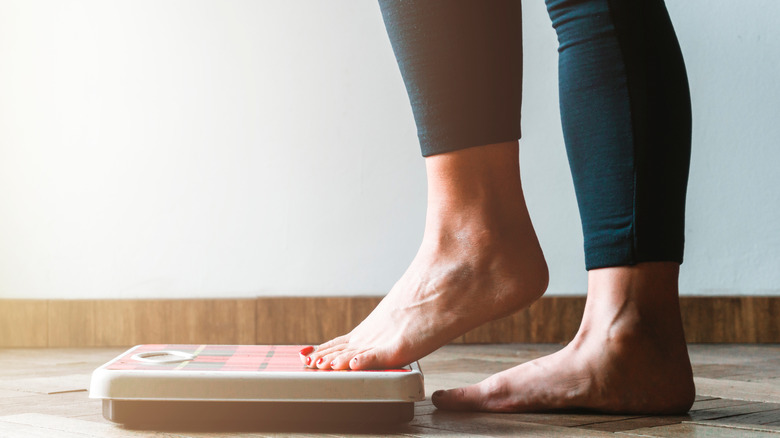Should You Consider The GOLO Diet?
The GOLO diet is a short-term weight loss plan that can be purchased in 30, 60, or 90-day increments. Also known as the GOLO Metabolic Plan, the GOLO diet claims to promote weight loss by managing insulin levels. According to Verywell Fit, this is done by limiting calories and portion sizes, cutting back on processed foods, and incorporating regular exercise. The GOLO diet involves eating three meals a day, all of which must contain one to two foods from each of the diet's "fuel groups," which include protein, vegetables, healthy fats, and carbohydrates.
Meanwhile, processed meats, refined foods, and added sugars are restricted. Each meal is followed by a supplement, which supposedly aids the weight loss process. The supplement contains magnesium, zinc, chromium, and a variety of herbs (via Verywell Fit). While on the GOLO diet, you can expect to consume anywhere between 1,300 and 1,800 calories per day, depending on the daily meal plan. While take-out and restaurant dining is allowed, you still have to follow the eating guidelines and exercise portion control.
Does the GOLO diet work?
According to experts at Good Housekeeping, the GOLO diet may help you lose weight, but further research is still needed. Any diet that includes whole foods and eliminates processed foods can potentially promote weight loss. However, there are no unbiased studies that properly evaluate the long-term effects of the GOLO diet. GOLO includes studies on their website, but the sample sizes are small and occur over a short period of time. There is also no concrete evidence that the supplement can help you lose weight in the long-term. Lastly, the GOLO diet can be quite expensive. A single bottle, or month's supply, of supplements costs $59.95.
You don't have to buy into a fad diet in order to eat healthy and well-balanced meals. In fact, structured diets may not even be all that helpful to begin with. "It's an externally based way of eating and doesn't take into consideration your body or your history — it may work in the short term, but like all other diets, will not work long term for most people," Alissa Rumsey, a dietitian and owner of Alissa Rumsey Nutrition and Wellness in New York City, told Good Housekeeping. If you're looking to lose weight, Rumsey recommends eating more intuitively by paying attention to how your body responds to hunger and satiety. "By doing this you will eat enough to nourish your body and find your body's natural set point weight," she added.


